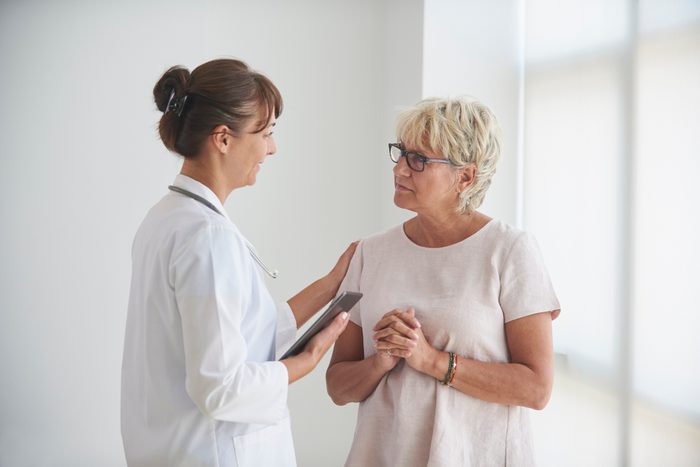
Questions about menopause
Menopause is known for its many different hormonal changes. You might expect some of the menopause symptoms that come before (here are perimenopause symptoms to know about) or after this major change, while others will come as a surprise—and may even be a little embarrassing. Here are the most common questions people have about menopause symptoms with answers from top doctors.
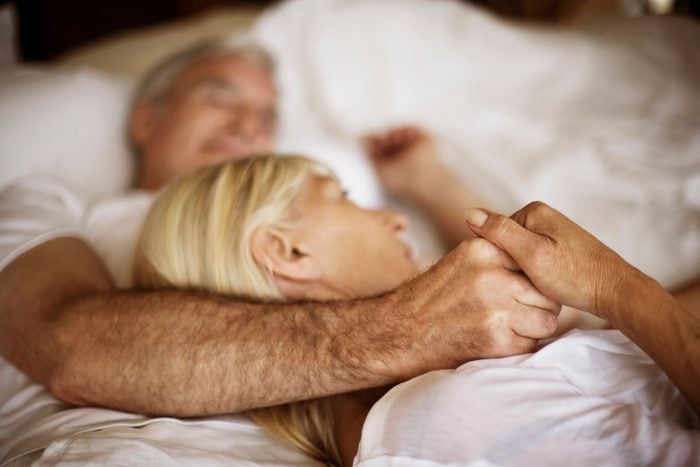
I basically never want to have sex anymore. What gives?
This is a common complaint as women approach menopause, says Jason James, MD, a board-certified ob-gyn and chief of obstetrics and gynecology at Baptist Hospital in Miami. “Hormonal changes can result in a drop in free testosterone, the hormone responsible for libido. This, coupled with physical changes and new life stressors can cause women to complain of a drop in or lack of desire for sexual intimacy,” he says. There are some medical options for treatment, but most solutions involve working together as a couple to ensure foreplay and intimacy are prioritized. Also, check out these natural libido boosters that could help you have better sex.
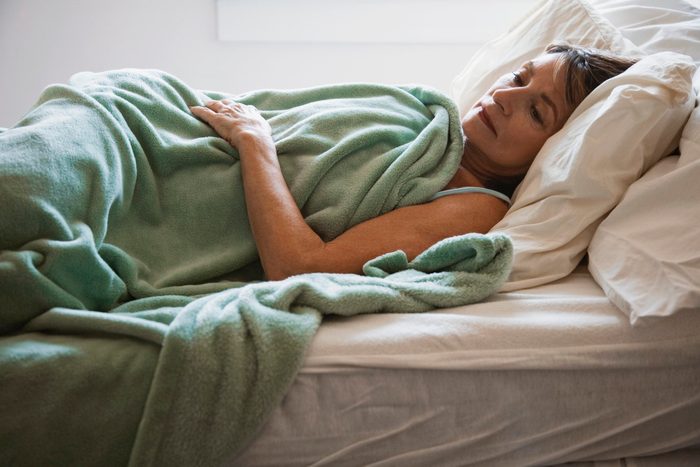
It feels like I can’t orgasm as easily anymore. What can I do about this?
This is a common issue for many menopausal women (but younger women can certainly have trouble having an orgasm during sex, too). Steven A. Rabin, MD, a board-certified ob-gyn in Burbank, California had a patient who ceased having orgasms altogether once she hit menopause. He shares, “It turns out she had severe [vaginal] atrophy. The thin, dry skin had shrunk so much it covered over her clitoris, a condition called clitoral phimosis. We were able to help with local estrogen cream and after six weeks she was back to her old self.”

I sometimes leak urine or can’t make it to the bathroom in time. Is this something I have to live with?
Dr. James says that the hormonal changes of menopause can cause atrophy in the tissues of the vagina and pelvic floor, which can lead to episodes of incontinence with certain activities such as coughing, laughing, sneezing, or jumping. This is called stress urinary incontinence because of physical stress on the pelvic floor. “In addition, hormonal changes can exacerbate overactive bladder symptoms, which cause sudden urges to urinate or leaking before reaching the restroom. Treatment options include bladder retraining, physical therapy, exercises such as Kegels, or surgery,” he says. Here are more ways to stop bladder leaks.
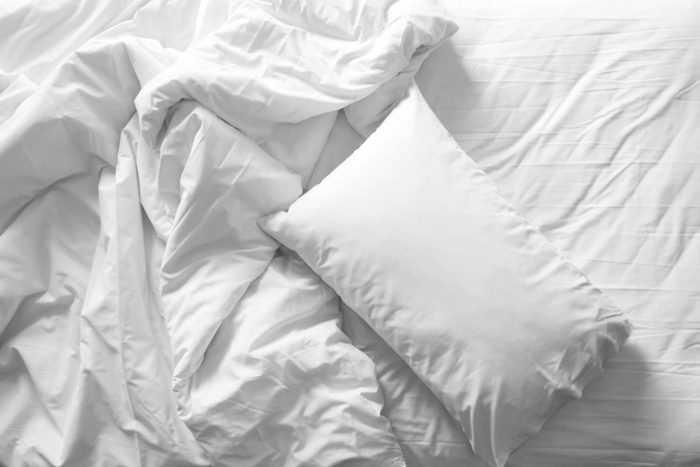
I drench my pajamas and sheets constantly with night sweats. It’s annoying and embarrassing. What can I do?
Night sweats are another form of hot flash that come with perimenopause. Hot flashes, including night sweats, can vary from rare occurrences to dozens a day. Dr. James recommends nutritional supplements, prescription medications, and hormones that can alleviate these symptoms, along with regular exercise, diet modifications, and the use of a fan in the bedroom to promote air circulation. Here are some other remedies for hot flashes that really work.
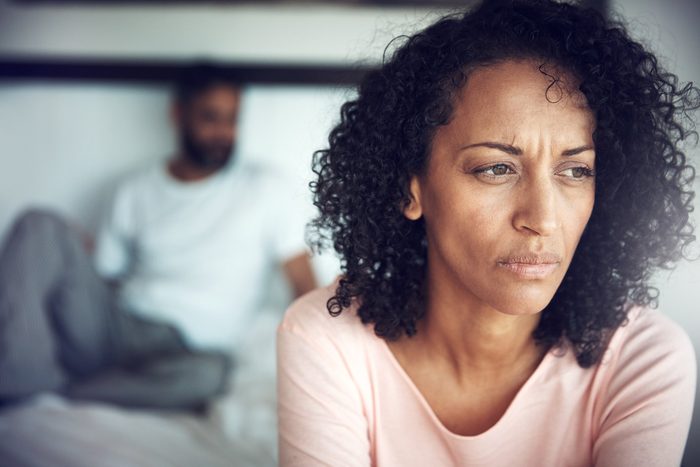
Is it normal for sex to hurt?
“Vaginal atrophy, a symptom of menopause, can cause vaginal dryness, which leads to pain during intercourse. This pain can cause a feedback loop, which results in a lack of desire to have sex. Increased foreplay, use of vaginal moisturizers, lubricants, hormones, or other medications can all lead to improvement of this common complaint,” says Dr. James.
And Dr. Rabin takes this further by saying, “Menopausal women experience a peak in their dryness and pain with sex about four years after their final period. The loss of elasticity leads to the inability to accommodate their partner even with gobs of lubrication.” Talk to your doctor about a treatment option for severe vaginal atrophy for pain-free sex.
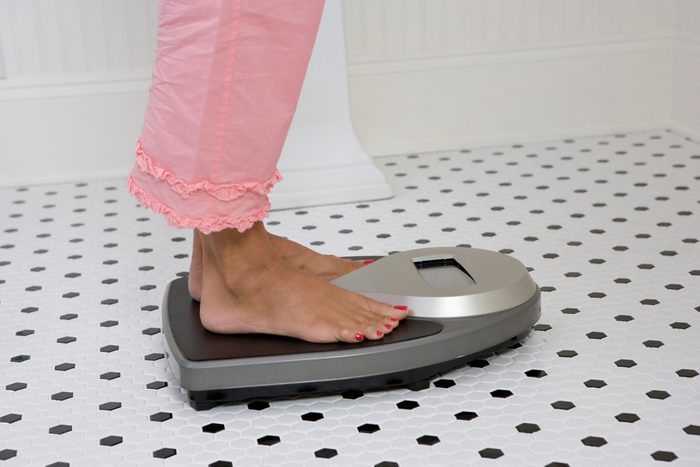
I’m gaining weight even though I am exercising and my eating habits have not changed. Why is that?
Many women experience a decrease in their metabolism that accompanies menopause. “A diet and exercise regimen that once allowed for weight maintenance might now need to be tailored for stricter calorie restriction, carbohydrate reduction, or increased exercise to yield the same results,” says Dr. James. Belly fat can be a particularly frustrating menopause body change. Here’s how to boost your metabolism.

What’s with these mood swings? Sometimes I feel like a teenager all over again
“Severe emotional lability, or mood swings, can have significantly detrimental effects on interpersonal relationships as women journey through menopause. Simply recognizing these mood changes can go a long way in minimizing their impact,” says Dr. James. He recommends exercise, nutritional supplements, cognitive behavioral therapy, along with medications such as antidepressants or hormone replacement therapy to minimize the effect of these mood changes. (Also, learn if red clover can relieve symptoms of menopause, like mood swings.)
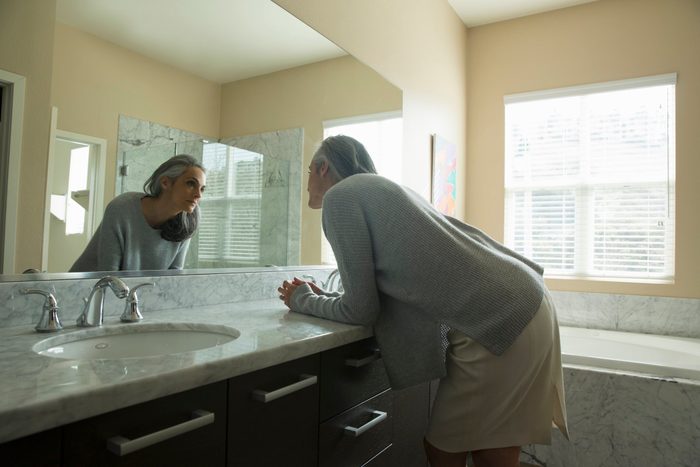
My hair is thinning … but I’m also growing a beard. What’s up with that?
Excessive hair loss and excessive hair growth are common during menopause. Unwanted facial hair is called hypertrichosis. It’s very common during and after menopause and is another result of hormonal changes. Dr. James says that a thorough review of a patient’s medication regimen and laboratory tests can help pinpoint common causes of hair loss in women and that there are many options available for treatment, so see your doctor or seek out a specialist that concentrates on female hair loss.
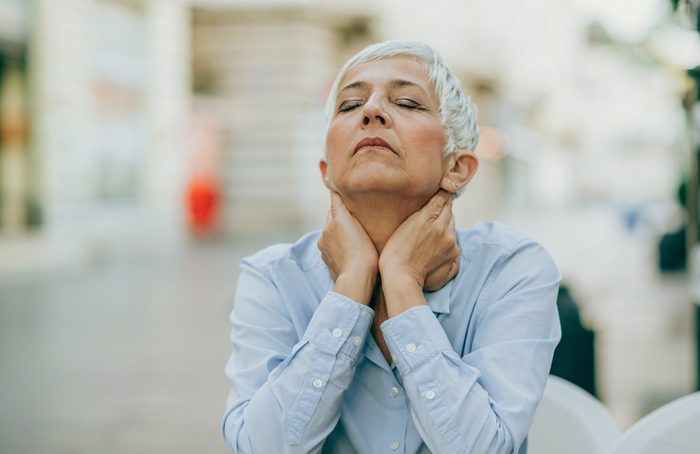
I have constant vaginal burning and itching. How can I make it stop?
Dr. Rabin says that every day he has conversations with his patients between ages 40 and 70 about this very issue. “Menopause is marked by the retirement of the ovaries. When they stop producing hormones, specifically estrogen, many of the tissues in the body begin to change. Vaginal dryness, itching, and cracking make it difficult to go through the day.” He recommends vaginal moisturizers, local estrogen therapy, systemic hormone therapy as well as other non-hormonal prescriptions based on your needs and goals.
Next, learn if hormone replacement therapy is right for you.
